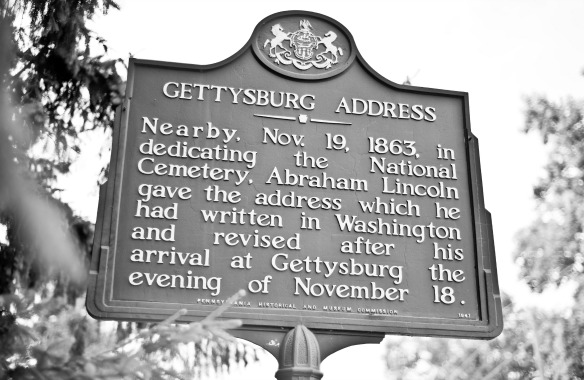Date: June 29, 2021
With Apologies to Mr. Lincoln
 Twelve score and five years ago our forebears brought forth on this continent, a new nation, conceived in Liberty, Bondage, and Theft, but dedicated to the proposition that all human beings are created equal.
Twelve score and five years ago our forebears brought forth on this continent, a new nation, conceived in Liberty, Bondage, and Theft, but dedicated to the proposition that all human beings are created equal.Now in the 21st century we are engaged in a powerful cultural battle, testing whether that nation, or any nation so conceived and so dedicated, can actually grow into its full potential, with liberty and equality and justice for all. Around us, from social media to houses of worship to the stairs of the Capitol to voting booths, we have fashioned battlefields.
We have come here to dedicate a day of remembrance, celebrating those who have struggled to birth our nation into reality. We celebrate and remember those who gave their lives for freedom, equality, and justice that the proposition of the nation may live–and grow up. It is altogether fitting and proper that we should do this.
But, in a larger sense, we cannot dedicate — we cannot consecrate — we cannot hallow – the promise of this nation. The brave Americans who lived and died in service of a free, equal, and just nation have consecrated this promise, far above our poor power to add or detract. It is for us the living, rather, to be dedicated here to the unfinished work which others of blessed memory have nobly advanced.
Our task is this: that from our honored dead we take increased devotion to that cause for which they gave the last full measure of devotion — that we here highly resolve that these dead shall not have died in vain — that this nation, under God, shall have a new birth of freedom, equality, and justice — and that government of the people, by the people, for the people, shall be realized–and then not perish from the earth.
(Author’s note. Abraham Lincoln was steeped in the words, stories, images, and cadence of the Bible. In the Gettysburg Address, he uses the plotline of birth, death, and new birth. This is also the plotline of baptism, which is a dying to the old self and coming up out of the water as the new and true self. His hope: rising from the death of that blood-soaked battlefield would come a new birth of freedom, a version of freedom in which all human beings would be included. In my homage to Mr. Lincoln’s words, I tried to preserve the core storyline of birth, death, and rebirth into a new, truer life.)
Dr. Gary Peluso-Verdend is president emeritus at Phillips Theological Seminary and is the executive director of the seminary’s Center for Religion in Public Life. The opinions expressed in this blog are those of the author. Learn more about the Center’s work here and about Gary here.


Comments are closed.